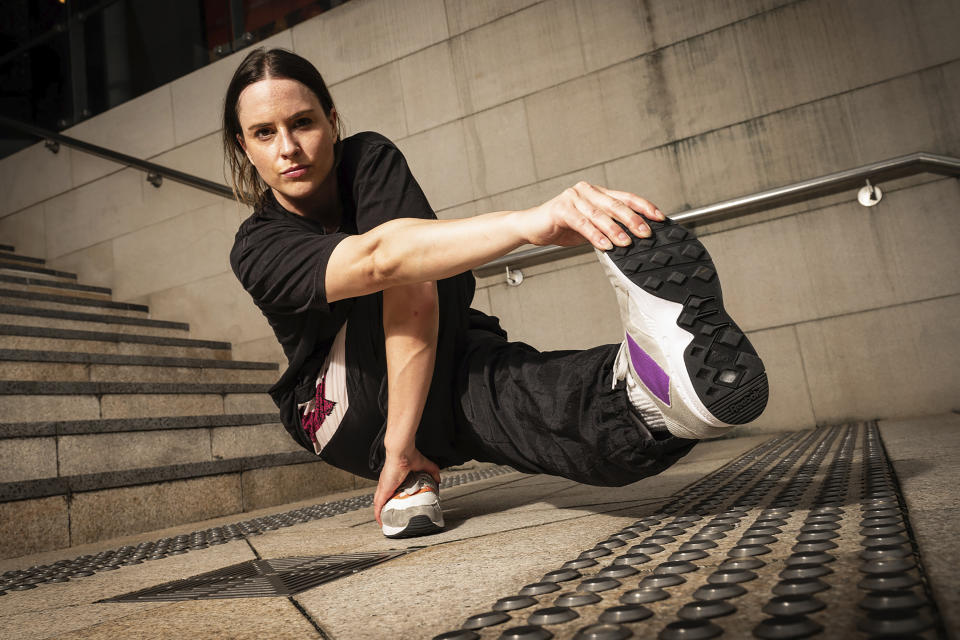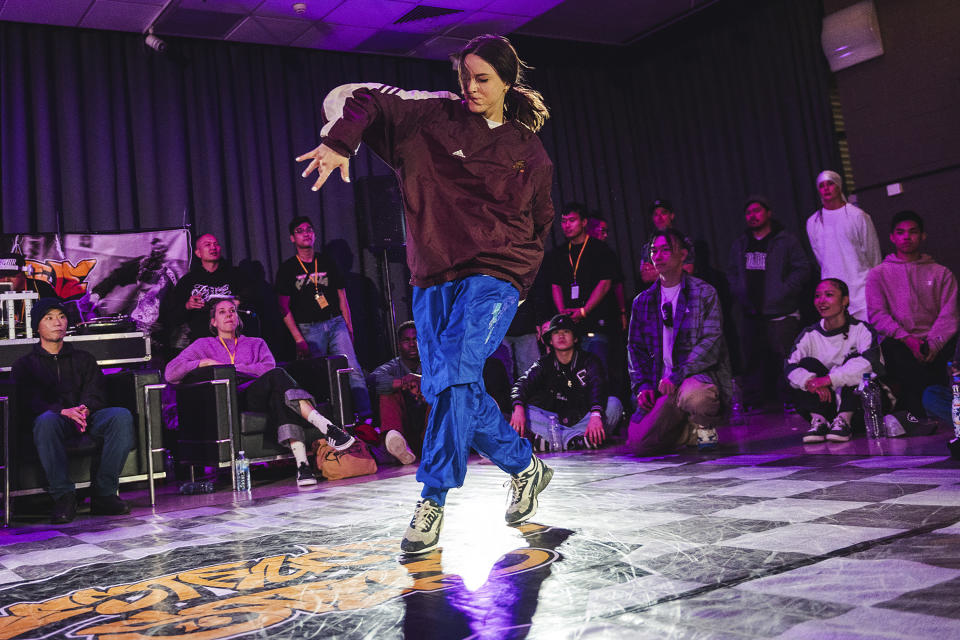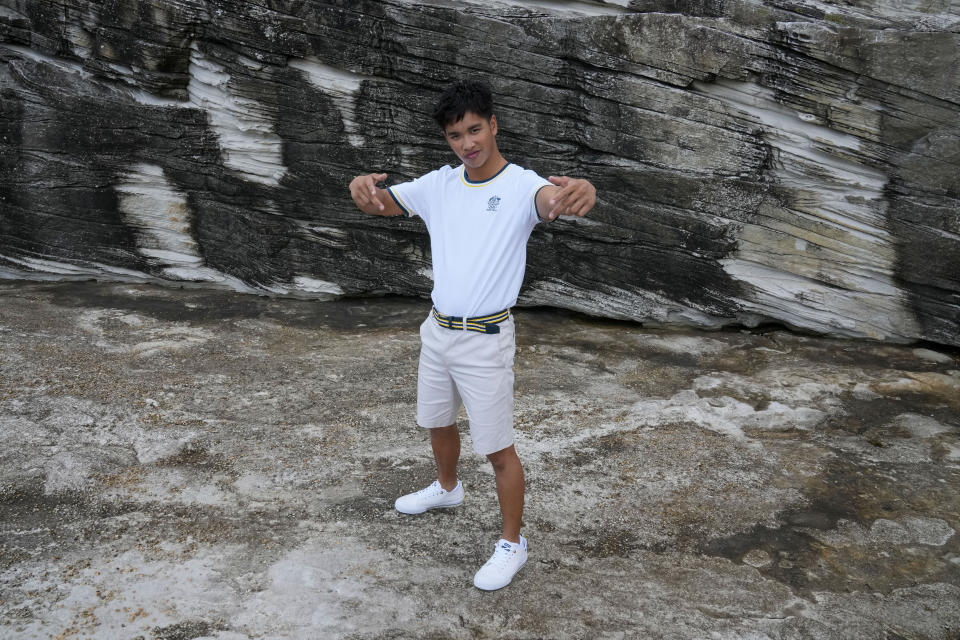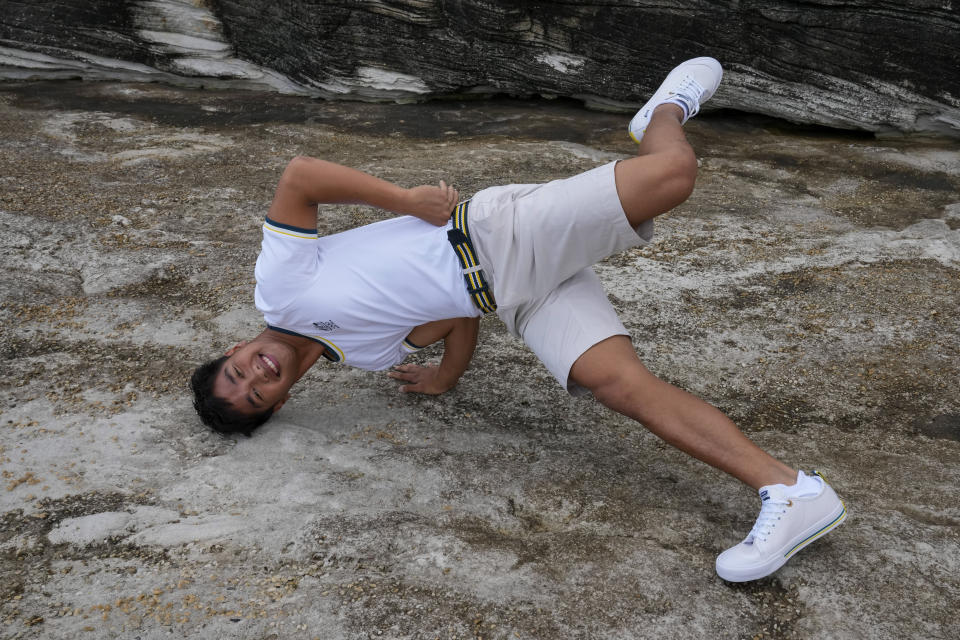Scholar opposites: A university lecturer and a high school student breaking new ground at Olympics
BRISBANE, Australia (AP) — University lecturer Rachael “Raygun” Gunn chuckles when she recalls telling her students that she’s a breaker – you know, spinning on the ground and bustin’ moves to blaring hip-hop music. Some of her students didn’t seem to believe her.
And that was before she was selected as one of at least two Australians who are Paris-bound to compete in the Olympic debut of breaking.
“I think many of them are surprised when they first find out, even a little suspicious whether I am telling the truth,” Gunn said in an interview with The Associated Press. “But they think it’s cool and are very supportive.”
Gunn, 36, a lecturer in media and creative industries at Sydney’s Macquarie University, and 16-year-old high school student Jeff “J-Attack” Dunne are in the women's and men's competitions at La Concorde on Aug. 9-10. The Australians qualified for Paris by winning the Oceania championships in Sydney last year.
Dunne’s routines feature dynamic moves including high-quality spins and windmills. A translation for the unfamiliar -- windmills are when a breaker rolls their torso continuously in a circular path on the floor, across the upper chest, shoulders and back, while twirling their legs in a V-shape through the air.
Dunne also has a classroom story to tell about his Olympic selection, albeit as the student, not the teacher.
“They were super stoked for me," Dunne says of his fellow students in year 11 at Lindisfarne Anglican Grammar School in Tweed Heads in northern New South Wales state. "But they know I am just a regular guy trying to finish school.”
Dunne, who has two older brothers and a sister, was adopted at 1 year old after being born in the Philippines. He got his start in breaking because of his sister Hannah’s hip-hop dance lessons in Brisbane when he was 7.
“There were breaking classes next to Hannah’s lessons so I would just go in there and watch,” he said. “It got to the point where I tried the moves ... and then I got into a class myself."
Back in Sydney, Gunn has been breaking for about 12 years, starting after meeting her then-boyfriend, now husband and fellow breaker Samuel Free.
“I had always been a dancer,” Gunn said. “I met him (Free) when I was 20, but it took me a few years to get into it. I first struggled with the upper body strength needed. There were a lot of challenges and back then not that many girls were doing it."
Gunn won't be the oldest breaker in Paris. One of her idols -- Japanese breaker Ayumi (she only goes by one name) is 40 and qualified from the Shanghai qualifying tournament on May 19.
“She’s been my inspiration, she has a huge range,” Gunn says of Ayumi. “I first took a workshop of hers in 2013 and we’ve been friends over the years.”
Gunn and Dunne don’t like being referred to as break dancers, saying that was an expression coined by the media when the sport started gaining attention -- apparently not aware that breakers never put ‘dance’ on the end of their art form. They prefer what they call the correct cultural terms from its hip-hop roots — B-Boy, B-Girl, breakers and breaking.
But the break-dancing references persist, sometimes in a semi-derogatory way relating to the sport’s first appearance as the Olympics.
The Australian breakers, who often practice from four to six hours a day, travelled to Italy and Britain in June for pre-Olympic events.
“It will be a good opportunity to try a lot of new material,” Gunn says. “Then we can come back and refine them, make any adjustments, and keep drilling those combos and making sure they can come out when we need them.”
Breakers aren't told what music they will perform to in each round — “you have to have the flexibility to change plans and respond to what your opponents are doing," Gunn said.
Breakers are judged on five categories -- originality, musicality, vocabulary (range of movement), execution and technique.
Among the female favorites for a medal are B-Girl Grace (Sunny) Choi, an American who won the gold medal in breaking at last year's Pan-American Games.
Dunne hopes his Philippines heritage will help carry him through the competition in Paris, and it was all part of his family's plan.
“Before COVID-19, we went back to the Philippines every 18 months,” Dunne says of trips with his family, including father Tony and mother Rhondda. “They wanted me to inherit the culture of where I was born."
Rhondda Dunne, who says the family is “super proud of him,” said the family made sure to take their son back to his birthplace to maintain his culture and “keep him grounded and humble.”
“Even after he won the Oceania competition (to qualify for the Olympics), he went into class the next day like nothing had happened,” Rhondda Dunne says. “The teachers and students were all waiting for him to tell them, they all knew. He eventually told them but they had to pull it out of him.”
Mission accomplished.
___
AP Paris Olympics: https://apnews.com/hub/2024-paris-olympic-games






